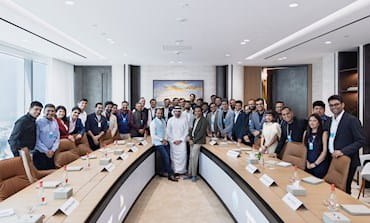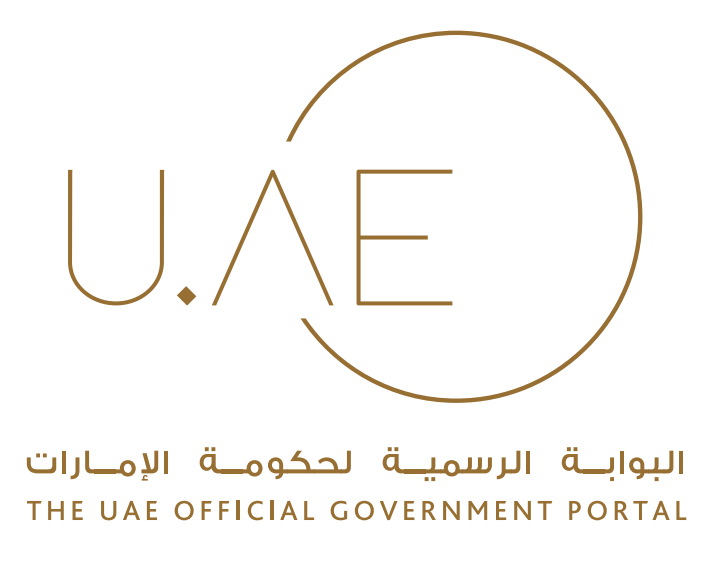- Annual Meetings of the Global Future Councils and Cybersecurity 2025 chart roadmap for high-impact sectors shaping human lives
Latifa bint Mohammed attends opening event, with more than 700 international experts convening in Dubai for the meetings
Mohammad Al Gergawi: The UAE leadership’s focus while charting its future strategic direction is on enhancing readiness and resilience across all vital sectors, in addition to developing frameworks for international cooperation through open dialogue
Ohood Al Roumi: Advancements in AI and data present new opportunities to develop innovative models of resilience and proactivity tailored to the constantly emerging changes
Børge Brende: Dubai and the UAE embody what dialogue, innovation, and global vision can achieve when united by a common purpose
The UAE Government and the World Economic Forum (WEF) inaugurated the Annual Meetings of the Global Future Councils and Cybersecurity 2025 in the presence of Her Highness Sheikha Latifa bint Mohammed bin Rashid Al Maktoum, Chairperson of the Dubai Culture and Arts Authority; His Highness Sheikh Mohammed bin Rashid bin Mohammed bin Rashid Al Maktoum; Sheikha Shamma bint Sultan bin Khalifa Al Nahyan, President and CEO of the UAE Independent Climate Change Accelerators (UICCA); and His Excellency Mohammad Abdullah Al Gergawi, UAE Minister of Cabinet Affairs, Co-Chair of the Global Future Councils, and Member of the WEF Leadership Council.
The opening event was attended by Her Excellency Ohood Khalfan Al Roumi, UAE Minister of State for Government Development and the Future; His Excellency Omar Sultan Al Olama, Minister of State for Artificial Intelligence, Digital Economy, and Remote Work Applications; and Her Excellency Maryam bint Ahmed Al Hammadi, Minister of State and Secretary General of the UAE Cabinet. The event also drew wide participation from UAE Government officials and more than 700 experts and specialists from the Global Future Councils.
Enhancing future readiness and resilience
HE Mohammad Al Gergawi asserted that the UAE leadership’s focus while charting its future strategic direction is on enhancing readiness and resilience across all vital sectors, in addition to developing frameworks for international cooperation through open dialogue facilitated by prominent platforms that provide space for a diverse, multi-faceted, and inclusive collective movement.
“The success of the Global Future Councils, organised by the UAE Government in partnership with the World Economic Forum, embodies the shared vision of the two parties,” His Excellency said. “It reflects a high level of awareness in the UAE that shaping the future is everyone’s concern and a mission for all of us; it is the most important item on the agenda of governments, organisations, and societies, and the main engine driving development effort across all sectors.”
As Co-Chair of the Global Future Councils, HE Al Gergawi noted that the event has solidified its status as a leading platform for galvanising and consolidating new knowledge, driving future-oriented thinking, and generating innovative solutions to challenges. “The Councils have enhanced their role as a laboratory for shaping new trends and sharing them with the world,” he asserted. “Their outputs have become a key element in forming the agenda of the World Economic Forum’s Annual Meeting in Davos.”
Engaging youth in shaping the future
In her opening remarks, HE Ohood Al Roumi asserted: “The Government of the United Arab Emirates, guided by its leadership, has recognised the truth that the future cannot be designed in isolation from the youth. Understanding the mindset of new generations and involving them in the decision-making process has become an urgent necessity to achieve global leadership and excellence, and one of the three most significant major transformations driving change in our current era.
“We are living in the middle of a historic decade, where the pace of pivotal developments is accelerating, crises are intertwining, and we face unprecedented questions, driven by scientific advancement and a technological race,” Her Excellency said. “With the accelerating pace of transformations, we are witnessing a global crisis of trust today. Global trust in institutions in developed economies has fallen to 49%, which underscores the need to re-evaluate global development models.”
Her Excellency added: “The second transformation we are experiencing is the escalation and acceleration of the new digital wave. It is expected that 70% of new value added over the next decade will come from business models generated by digital technology. Artificial Intelligence has become a powerful catalyst for development that can add up to $7 trillion to global GDP by 2030. That, however, requires human-centric design, shared global ethical standards and governance, and new skills that society as a whole has to be trained to master for it to play its optimal role.”
The growing role of technology and AI has come with an escalation in cyber threats, HE Al Roumi pointed out. “It is expected that the global cost of cyber threats will rise to nearly $20 trillion annually by 2030, further confirming the growing role of resilience, trust, and secure digital infrastructure as fundamental pillars for a prosperous future.”
The third transformation HE Al Roumi cited was the effort to redefine resilience. “The speed at which the future is unfolding today outpaces the capabilities of our current systems and models to respond and interact. The world today must adopt a different approach to deal with crises, one where resilience serves as an element in building new opportunities enhanced by artificial intelligence and data, and through which resilience evolves as a proactive and innovative approach to work.”
Promoting dialogue and a global vision
In his opening remarks, Børge Brende, President and CEO of the World Economic Forum, highlighted the notable technological advances the world is witnessing, noting, however, that the complicated state of global affairs today can cast a shadow on that progress.
“We meet at a time of great complexity and even greater possibility,” Brende said. “The highest tariff we face today is uncertainty. Geopolitical fragmentation, surging expectations, and exponential technological change are reshaping the very fabric of our world. The global economy has shown incredible resilience, but growth is not strong enough to provide opportunities for all. Countries need to get their houses in order; reforms cannot wait.
“Technology is no longer a tool we use – it is the system we live in,” he observed. “The potential of the AI revolution is breathtaking; it could help us conquer disease and supercharge growth. We now have systems as smart as our smartest humans; imagine what it will be like when they are self-improving. New technologies will be the engine of growth in the decades to come.
“This opportunity arrives amid unprecedented fragmentation – at the very moment collaboration is needed,” he noted, citing global tensions as a major concern, along with the increasing rates of cybercrime. “Our speed of problem-solving needs to be ahead of our speed of problem-creation.”
On that note, Brende revealed that the upcoming WEF Annual Meeting in Davos will be held under the theme ‘A Spirit of Dialogue’. “Our gathering here will help lay the intellectual foundation for that spirit,” he affirmed. “And what better place to do so than Dubai, in the United Arab Emirates – a nation that embodies what dialogue, innovation, and global vision can achieve when united by a common purpose.”









 For an optimal experience please
For an optimal experience please